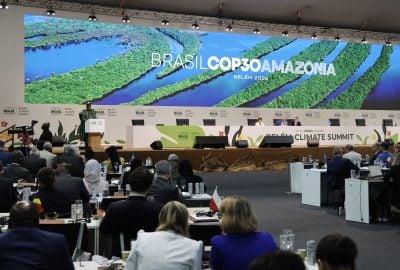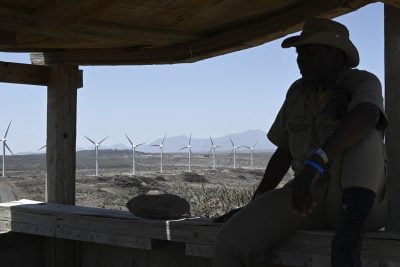Nutreco, the Netherlands-based animal feed and nutrition company, is looking to build on its existing presence in four markets in Africa.
The food production giant, which operates in over 40 countries worldwide, currently has production units in Egypt, Nigeria, Zambia and South Africa.
Selling over $6bn in animal feed and nutrition products each year, Africa accounts for 2% of the firm’s total revenue. However, Africa is a key growth region for the company, says José Villalón, corporate sustainability director.
“Nigeria is projected to be the third largest country by population size by 2050 along with India and China,” he tells African Business. “When you think of those types of population density and scale there are going to be major challenges to meet. We see this as a growth geography and we have done so for the past few years.”
In Egypt, Africa’s largest exporter of tilapia fish, Nutreco supplies feed to the industry. In Nigeria, it services the market for freshwater fish and shrimp feed from a base in Ibadan.
One of the biggest drivers of the business is the demand for high-quality feed on the continent, Villalón says. Most freshwater fish species reared for commercial purposes in Nigeria are fed food waste. This has a detrimental effect on potential yields, and it may also cause biosecurity issues.
Along with the spread of diseases, a major concern for the industry is that antibiotics in animal husbandry may contribute to antibiotic resistance in humans.
“The WHO predicts that by 2050 more people will die of a simple bacteria that is resistant to antibiotics than die of cancer today,” says Villalón.
For this reason, Nutreco is committed to assisting their clients to eliminate the use and dependency of antibiotics for animal growth promotion and to preemptively treat animal sickness.
The company, which is owned by SHV Holdings, one of the world’s largest private trading groups, will not use antibiotics that are deemed of “critical importance for human health” by the WHO.
A lack of oversight and adequate regulation in the animal feed sector is a concern for the creation of anti-microbial resistance and spread of diseases in Africa, Villalón says.
In terms of productivity, the right nutrition and feed can more than double the output of an animal or animal product. For example, a cow in Holland will produce 9,000 litres of milk per year compared to below 4,000 in Nigeria.
Working with small freshwater fish farmers in Nigeria, Nutreco has been able to double the output, reduce the amount of feed needed by 30% and increase animal survival rates by 40%.
Nutreco is expected to open two new factories in Africa this year, Villalón says.
Want to continue reading? Subscribe today.
You've read all your free articles for this month! Subscribe now to enjoy full access to our content.
Digital Monthly
£8.00 / month
Receive full unlimited access to our articles, opinions, podcasts and more.
Digital Yearly
£70.00 / year
Our best value offer - save £26 and gain access to all of our digital content for an entire year!
 Sign in with Google
Sign in with Google 



